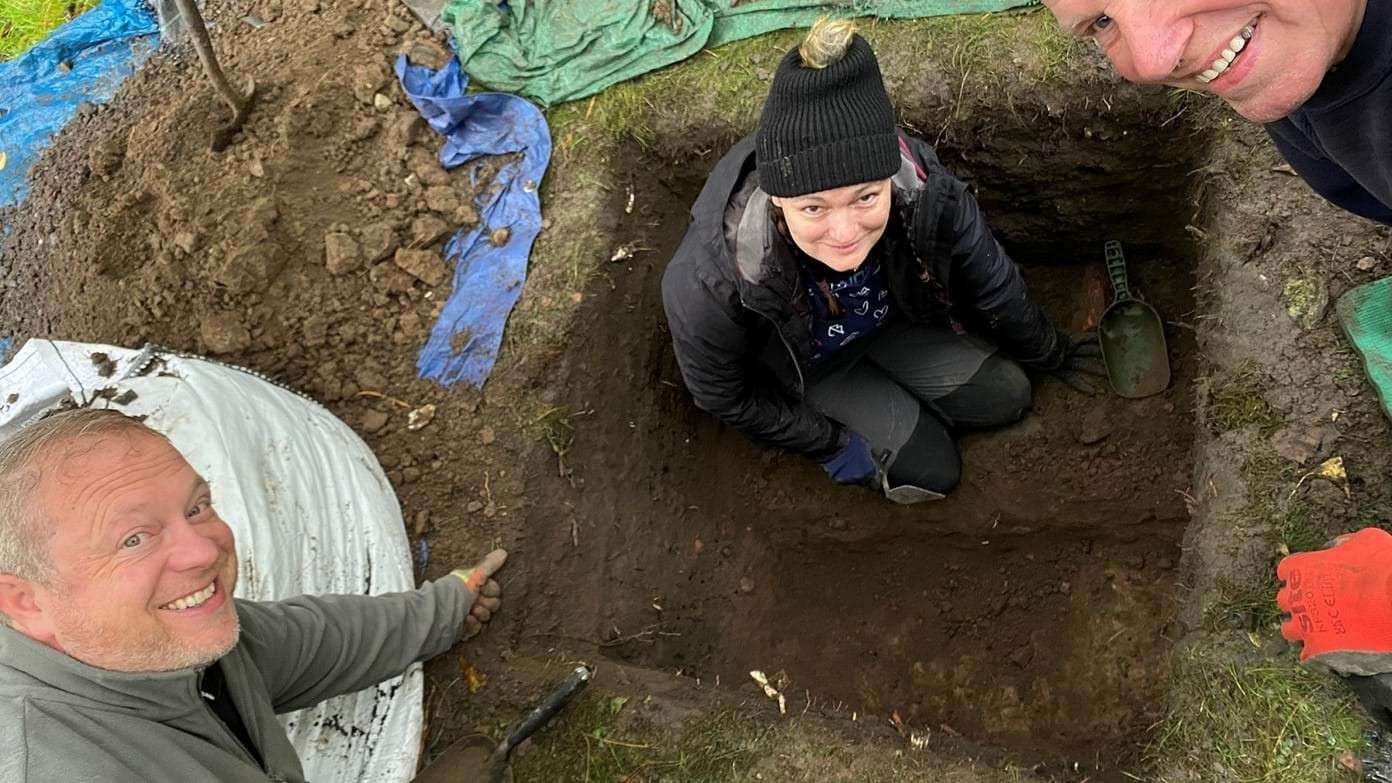The site of an ancient Roman Road, described as the most important in Scottish history, has been discovered in a garden near Stirling. Dating back almost 2000 years, the cobbled road was built by the Roman armies of General Julius Agricola in the 1st century AD and would have connected to a ford that crossed the River Forth. It was uncovered during a dig in the garden of a cottage, located a few miles to the west of Stirling city centre and next to the 18th century Old Drip Bridge.
The road and the crossing would have been used again by the Romans in the 2nd and 3rd centuries AD as legions launched fresh invasions of Scotland under the emperors Antonine and Severan. Many of the key historical figures of Scottish and British history also used the road for military campaigns given its strategic importance for crossing the Forth and reaching the Highlands, as well as its proximity to Stirling – Scotland’s former capital city.
The most important road in Scottish history
Stirling Council Archaeologist Murray Cook, who led the dig, said: “This crossing would have been used by the Romans, the Picts, William the Conqueror, Oliver Cromwell and every King and Queen of Scotland, including MacBeth, Kenneth McAlpin and Robert the Bruce – but not Bonnie Prince Charlie who we know crossed the river at a ford at Frew to the west of Stirling. It is the most important road in Scottish history so it’s an amazing discovery. To literally walk where Wallace and Bruce went, let alone the Romans, Picts and Vikings is astonishing. It has also never been clear before this find where this road ran.To the south the road heads towards Falkirk and would eventually take you to England. To the north, it would take you a crossing over the Tay and the edge of the Roman Empire.”
The dig took place in the garden of the Old Inn Cottage, a former Drover Inn built in the 17th century. This year marks the 900th anniversary of Stirling as a Royal Burgh, founded by King David I in 1124.
Main photo: Dominic Farrugia, Jennifer Strachan and Peter Dun who were all volunteers on the dig.

